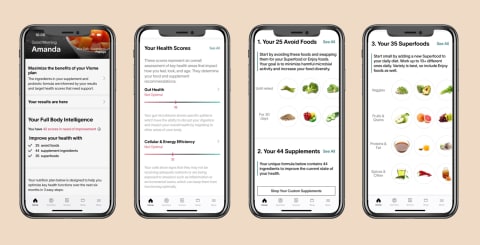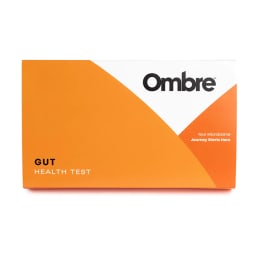With nearly 70 million Americans facing some sort of digestive disease, taking charge of your gut health is as imperative as ever. Studies have shown poor gut health does not only affect the digestive system1. It’s been linked to skin issues, mood disorders, negative emotions, diabetes, and even cancers2. What we eat and drink, our daily movement, sleep quality, and stress levels all impact our gut microbes and digestion. Learning about your gut microbiome gives you insight into your overall health and well-being. To help you take your health to the next level, we spoke with experts and analyzed today’s at-home testing options, to find the best microbiome tests available right now. However, any disruption to this delicate balance of good and bad bacteria can cause several harmful conditions, such as inflammatory bowel disease, irritable bowel syndrome, asthma, atherosclerosis, obesity, and metabolic disorders. Extensive studies show that a healthy microbiome looks different for everyone. Michael Njunge, a health and performance enthusiast and medical doctor in the U.K., compares the gut microbiome to your unique fingerprint. Each person’s microbiome will have different components to accommodate regional diversity. Further, your unique dynamic gut flora demands will be based on specific environmental forces. What is considered a healthy gut one year may change the next. Njunge encourages consumers to think of the gut microbiome as a pivotal piece of your health, adding that, “If you take care of it, it will take care of you.” As with all non-diagnostic testing, it’s important to discuss results with a healthcare provider, since at-home tests don’t take into account family history, lifestyle, diet, etc to determine the cause of any symptoms. The following are all potential signs of sub-optimal gut health: Keep in mind, if you have recently finished a medication known to impact the gut biome, such as antibiotics, Njunge says it is wise to ask your doctor about those potential effects. Anyone experiencing severe digestive symptoms should consult with a medical professional. At-home tests are not a source of diagnostic testing and are not a replacement for traditional medical care. If you do opt for an at-home test, it’s also important to be able to analyze the results with your doctor, to better understand what’s going on and how to treat any abnormalities. Once you’ve sent in your stool sample, it’ll take about 2 to 3 weeks to receive results in a secure app. These results will outline your digestive deficiencies, as well as post-test recommendations for helping your gut. However, there’s no medical follow-up, so we recommend touching base with your primary care physician before making any changes to your routine. Want to know more? Check out our full review of Viome’s Gut Intelligence Test, from a Registered Nurse. With your results, you’ll be given a gut health score of 1 to 10. Although uncomplicated and simple, it may not provide enough detail for some—which makes the live consultation even more valuable. Like most brands, Biome uses DNA to test for biomarkers. Just know that dead microorganisms can leave behind traces of DNA, which can be picked up by the testing method and can skew the results. However, this brand is still a standout for those who want regular gut testing. With the Floré subscription service, you’ll pay a monthly $79 subscription fee and receive a microbiome test every four months.












